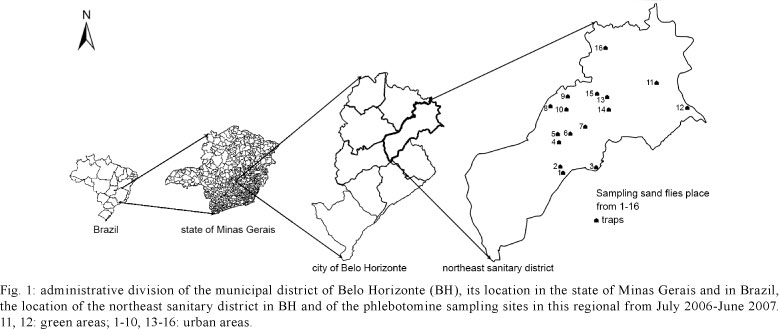Over the last 20 years, there has been an increase in the number of leishmaniasis cases in Brazil. Belo Horizonte (BH) is one of the most highly populated Brazilian cities that is affected by visceral leishmaniasis (VL). The health services in BH are coordinated by a central nucleus that is subdivided into nine sanitary districts. Historically, the highest level of human VL cases was found in the northeast sanitary district (NSD). The objective of our study was to detect Leishmania infection in the phlebotomine sand flies collected in the NSD by dissection and molecular approaches. Following the occurrence of human VL cases in 2005, entomological captures were performed from July 2006-June 2007. Out of the 245 sand flies dissected, only three Lutzomyia longipalpis spp contained flagellates. The female sand flies were grouped into 120 pools according to date, collection site and species, with approximately 10 individual sand flies in each pool. Subsquently, the DNA was extracted and Leishmania spp and other parasites were detected and identified by polymerase chain reaction (PCR) and PCR-restriction fragment length polymorfism. Leishmania infantum was present in at least 19% of the Lu. longipalpis collected, in 3.8% of the Nyssomiya whitmani collected, in 33.3% of the Evandromiya termitophila collected and in 14.3% of the Nyssomiya intermedia collected. When the females of the cortelezzii complex were compared with each other, 3.2% of the females were infected with Leishmania braziliensis, whereas 3.2% of the females were infected with trypanosomatids.
Leishmania spp; sand flies; natural infection; Belo Horizonte





